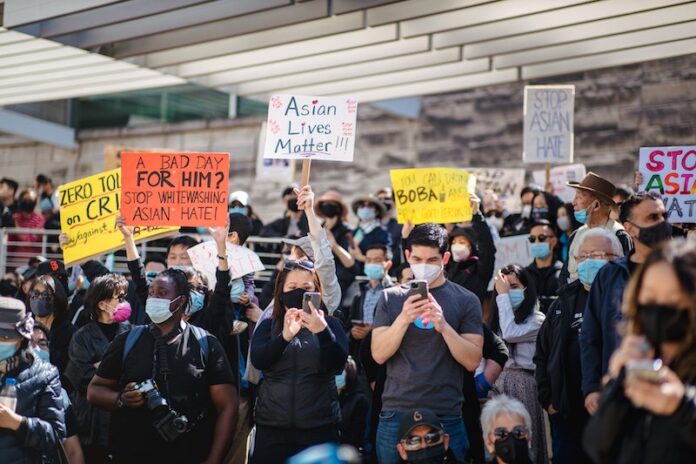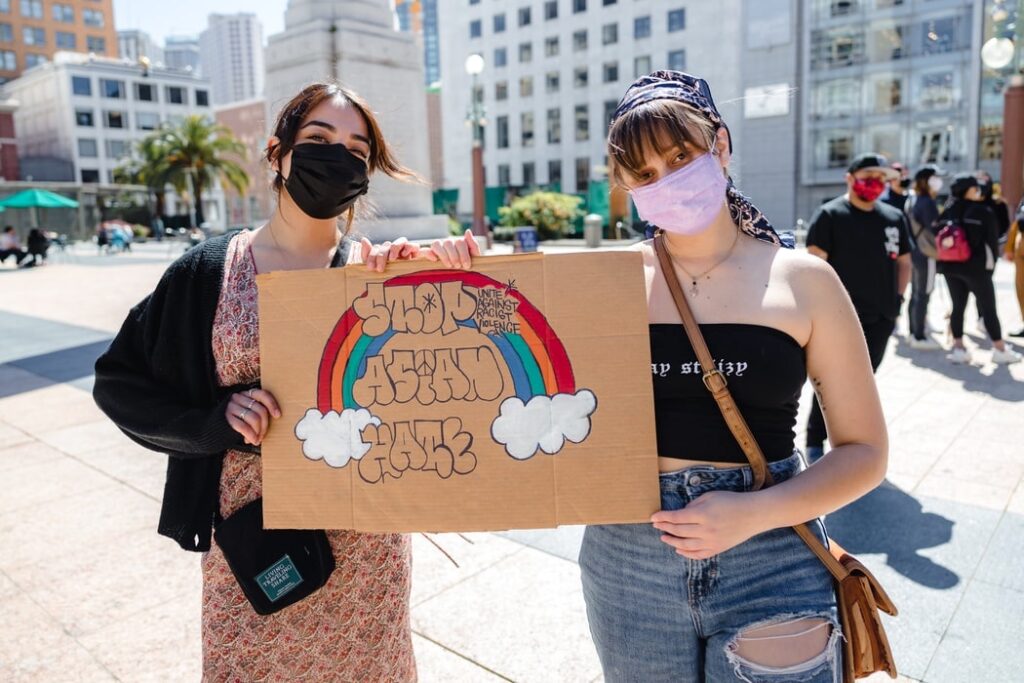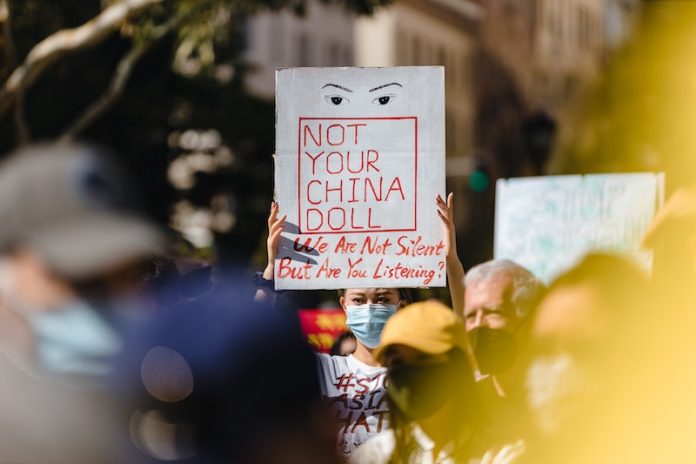It shouldn’t have taken a mass shooting and a pandemic for the world to wake up to the historic violence against Asian women. For women of Asian ancestry such as myself, the Atlanta spa shootings were anything but surprising — we have been subject to vitriol and vilification not only throughout COVID-19, but our entire lives. While increased awareness of anti-Asian discrimination is promising, there can ultimately be no progress until these conversations include Asian women.
Racism towards Asians has long operated along gendered lines; it is inextricably tied to misogyny. The Stop AAPI Hate National Report recorded 3800 hate incidents in the US in the past year, of which women were targeted 2.3 times more than men. The historical hyper-sexualisation of Asian women in popular culture has become entangled in our experiences of discrimination, Dr Hye-Kyung Kang, Chair of the Seattle University Social Work Department explained in an opinion piece for The Seattle Times. Ultimately, and almost inevitably, it has rendered us key targets for predators.

Within pop culture, we have been historically misrepresented as submissive and meek objects who exist merely to satisfy the Western male gaze, Sung Yeon Choimorrow of the National Asian Pacific American Women’s Forum told ABC News (US) earlier this year. Asian women are hardly given roles in Hollywood films; we represent less than 1 per cent of all leading roles according to a study by the New York Times. When we are, we’re portrayed as one of two stereotypes: “dragon lady” or “china doll” — both paint Asian women as compliant, sexual and orientalist objects, who need to be rescued by white men, exemplified by Professor Shoba Rajgopal’s 2010 journal article. We’ve seen this seductive portrayal manifest in films and musicals such as The World of Suzie Wong, Full Metal Jacket, and Miss Saigon. The Atlanta suspect was indicted on domestic terror and murder charges in May, and prosecutors are currently seeking the death penalty, according to USA Today. However, he has not yet been charged with hate crimes, despite blaming a ‘sex addiction’ for his actions, arguing these women were a source of temptation for him, Dr Kang explained. Perhaps this can, in part, be attributed to a culture that has, for centuries, denigrated Asian women as concupiscent commodities.

In America, this commodification is historical; it began with the Page Act of 1875 and the Chinese Exclusion Act of 1882, which banned Chinese women from immigrating to the US because they were seen as prostitutes and bearers of disease, according to the UCLA Center for Comparative Immigration Studies. Almost concurrently, the White Australia Policy banned Asians from entering Australia to preserve a ‘British’ image from 1901 to 1973, Professor Neville Meaney explained in his 1995 journal article.
In this country, we may not have the same problem with gun violence, but the hyper-sexualisation of Asian women is equally prevalent. I’ve had men fetishise my mixed-race background, skin colour and “Asian-ness”; asking: “What mix are you?” and “Where are you really from?” My friends of Asian descent have experienced similar, uncomfortable remarks on a regular basis. Australia has not been immune to coronavirus-related racism either — a survey by the Lowy Institute found that nearly 1 in 5 Chinese-Australians have reported physical or verbal abuse since the pandemic began.
So, how can we begin to address a society steeped in systemic racism and misogyny? We must start by acknowledging the experiences of Asian women in conversations about racism and sexual violence. We need to recognise anti-Asian violence is often synonymous with anti-women violence; that these fates are intertwined, and until we do so, Asian women will continue to be the targets of hate.


